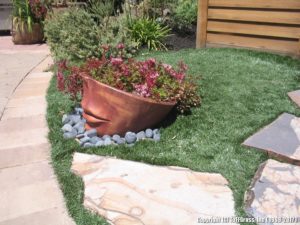AVOID BENDER BOARD FAILURE WITH ARTIFICIAL GRASS
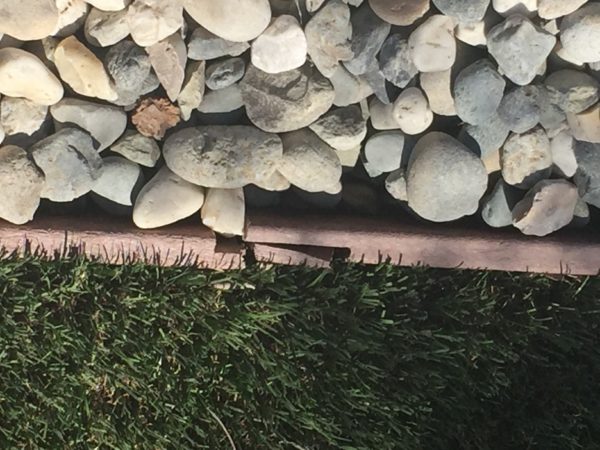
Failed Bender Board Edging. The bender board is too thin and has been poorly installed.
It won’t take long for a poorly installed bender board edge, used to trim an artificial grass lawn or putting green, to fail; especially in an active backyard or play area.
Front yard projects may survive longer but when bender board isn’t installed well, it’s failure will be swift and certain.
Joints may fail, edges may move and small, loose materials can easily migrate into the grasses, as well.
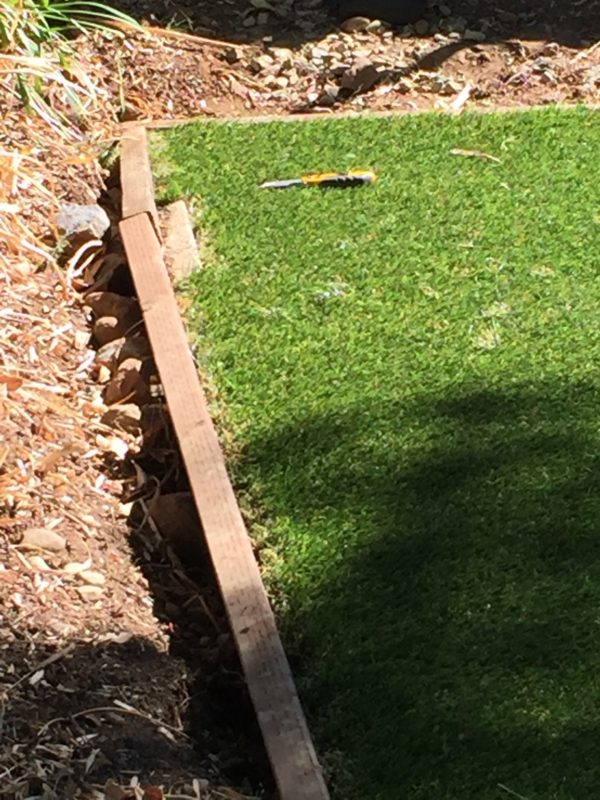
Bender board fail along artificial grass edge due to poor installation.
Bender Board Trim for Artificial Grass
Well built, a bender board edging can provide distinct lines between the artificial grass and garden or walkway materials. Available in a variety of colors and materials, we typically specify no less than a 2 inch wide by 4 to 6 inch tall material. The thickness and height along with stakes set on 12 inch centers all work together in helping to maintain a true line, even under full sun and high traffic. Natural and synthetic materials will all require repair or replacement, eventually; another reason we recommend natural rock, block, brick or hard surfaces as trim, instead.
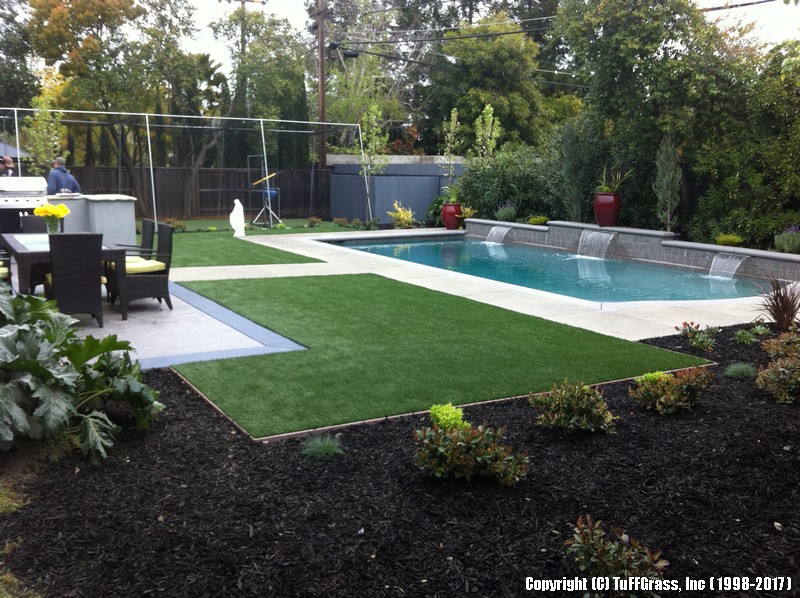
Angular edges enhances the formal look of this active residential backyard. The bender board trim separates the gardens from the artificial grass areas, along 3 sides of the pool.
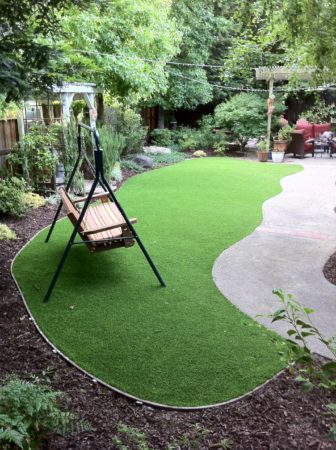
Low traffic, shady backyard – ideal for bender board trim!
You want a durable solution that will last a long time without repair or replacement and we want to deliver that to you.
We always consider these conditions before recommending bender board for trim:
- Traffic
- Retention (Type of stakes and fasteners)
- Fill Materials
- UV & Weather
- Spec Appropriate Bender Board System
Ideal Back Fill Materials
Materials that back fill to the bender board provide RETENTION and help to hold the bender board in place, horizontally. Vertical stability comes from using solid, durable stakes of the proper type, attached to the bender board within tolerances, using only best fasteners.
- Chunkie bark options (avoid crushed walnut or pea-size chips)
- Rocks from 2+ inches (flat/angular for walkways, round for gardens; avoid pea gravels and drain-rock)
- Decomposed granite & other compactable aggregates
- A mix of loose deco rock or bark and stepping or flag stones.
Another Option to Bender Board
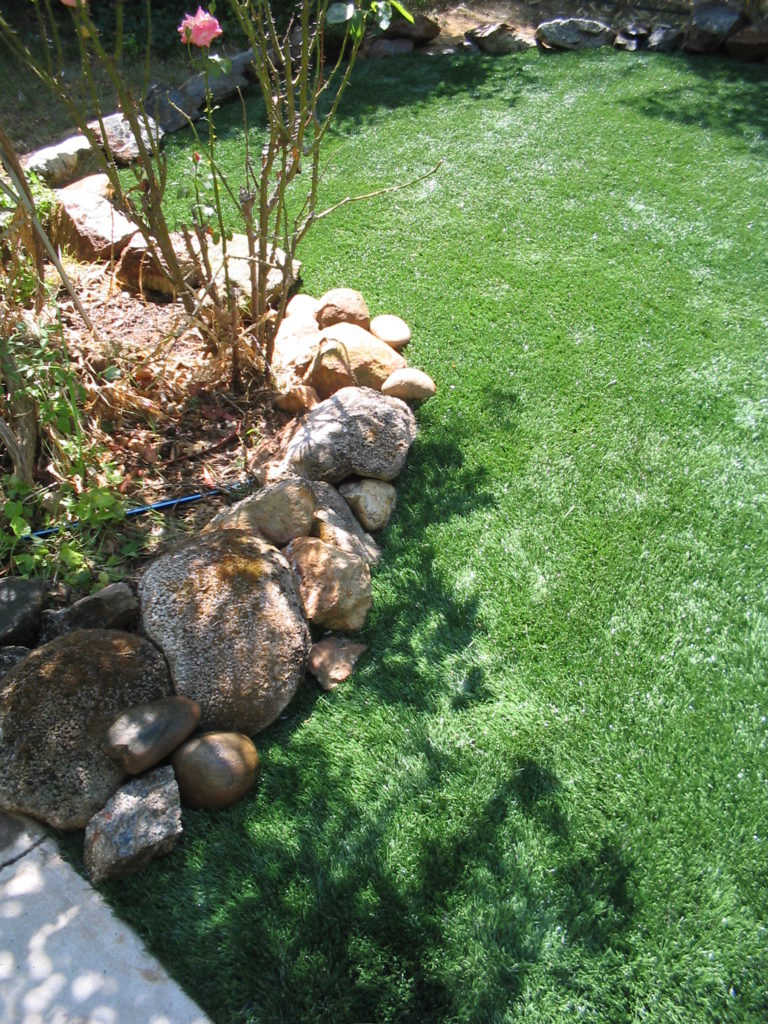
The large rock trim used for this garden edge replaces the need for bender board along the edge of this artificial grass lawn area.
Our famous
Rolled-Edge!
We starting using this edging technique when we opened the company back in 1998 – we can stand behind it’s ability to deliver on a natural looking and durable edge for most uses!
You can achieve really beautiful meandering edges that enhance any design – providing the optimum in trim options!
Our building specification uses durable stabilizing under-layment fabrics and adequate extra artificial grass which is tucked around the edge and tacked together to securely close the edge so that ants, worms, and invasive root systems won’t enter the edges, over time. The edges are between 3 to 6 inches in height, depending upon the type of edge required for your garden or edging solutions.
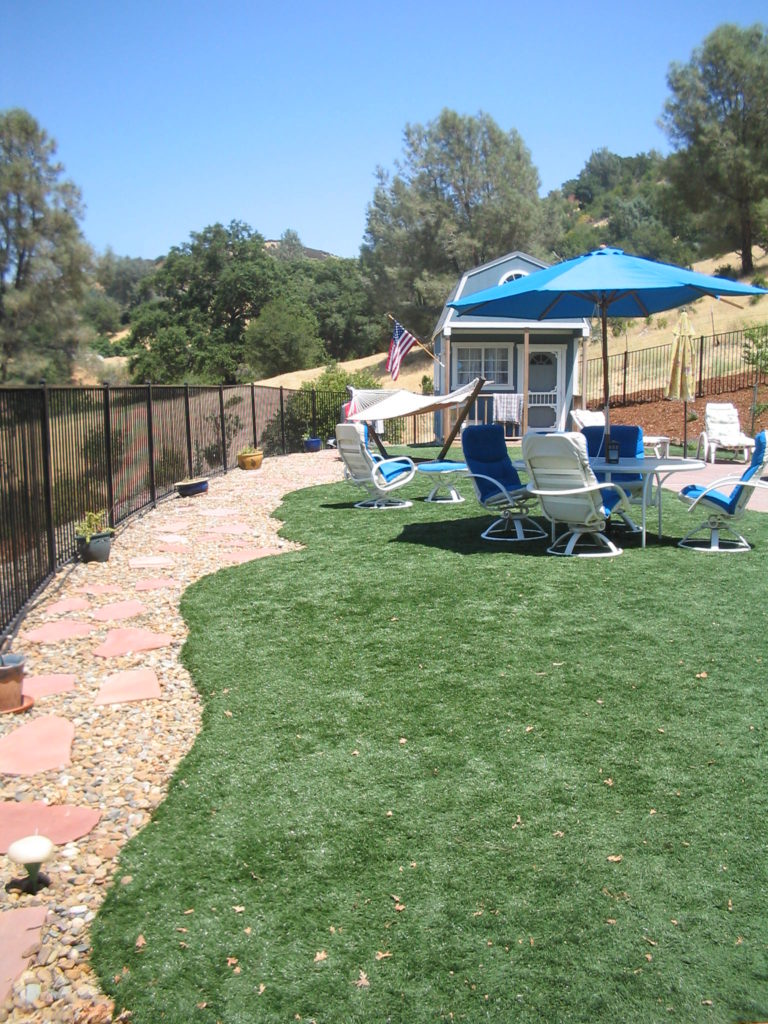
Set on a sunny slope deep in the Sierra Nevada foothills, this artificial grass lawn play yard is the outdoor destination of this active family! Featuring our unique rolled edge, we designed the edge to help shed rain fall and snow melt into drainage hidden under the rock and flagstone; weeping out beyond the fence and down slope.
We will often use natural materials to backfill – and in the images shown you see a mix of native rocks, bark, and also smaller deco rocks mixed with flagstone.

This front yard in a rural neighborhood also accommodated the rain run off from the slope of the street in front of this home. The channel, that crosses the front yard, is a functional drain channel, using gravity, and during the dry season, is a pretty, meandering dry creek bed.
The front yard project with the dry creek bed is actually a functional swale! We used this rolled edge technique but due to the winter rain water that drains through the yard (by the design of the HOA) this front yard “culvert” needed larger cobble rock to endure the potential water that would flow through during the heaviest of rain storms.
Ready to get started on your own artificial grass installation?
Request a Free Estimate/ HERE
or Phone Our Office & Chat About Your Ideas!
Happy to answer questions, talk about your project goals & with basic information, we can even give you a rough estimate for your budgets!

